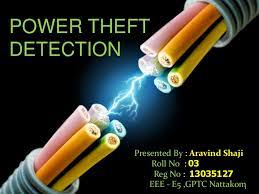Electricity Detection

Imtiaz Ali Shah
The Electric Supply Companies (ESCO) generally issue heavy detection bills to the electricity consumers on flimsy and whimsical grounds. They even do not follow the proper procedure. It is a matter of routine that due to some official policy or grudge the officials of companies charge detection on consumers. Sometimes, the companies have to meet up with their desired target of recovery. The word ‘Detection’ has not been defined in the Electricity Act, 1910. The literal meaning of the word ‘detection’ is ‘discovery’ or ‘act of detecting’. In general, detection is an approach taken by Electric Supply companies to detect electricity theft or unlawful consumption of electricity by consumers through any unlawful means. Generally, the penalty of detection is imposed under section 48 of the Electricity Act, 1910. The Electric Supply Companies publish ‘detection’ policies for the smooth administration of work and awareness of consumers. Like, HESCO mentioned in its policy that the ‘Detection’ bill would be raised when:- (i) Hole in meter body is detected, (ii) Consumer is found stealing energy through shunt/loops on the terminal box, (iii). If the meter is slow or tempered, (iv) Consumer detected stealing energy through direct Kundas on L.T lines or tapping the main cable before the meter is to be dealt severely by lodging FIR and removal of the meter through “FARD MAQBOOZGEE” in addition to detection billing up to 06 months, (v) consumer whose meter is found slow by more than + 2% of the specified accuracy, by M&T staff. However, when a consumer is charged with detection, according to the policy of Electric Supply Companies he represents against the detection bill, and he will be given a personal hearing by the Circle Review Committee. According to policies Superintendent Engineer should ensure to hold proceedings of the Review Committee at least every 10 days and should publically announce his decision. In addition, the consumers have also remedies to approach the officers of the National Electric Power Regulatory Authority, which is more effective and fruitful. For issuing a detection bill to the consumer, the Electric Supply Company must ascertain whether a consumer is consuming electricity through illegal mode. The Electric Supply Company cannot issue detection bills to consumers without hearing them as the detection thus billed to the consumer is illegal. According to the decision of Peshawar High Court (2009 YLR 628), the Consumer must be given a notice under section 20 of Electricity Act 1910; and any action taken at the back of the consumer and without notice to him would be violative of the principle of natural justice. The issuance of notice before charging the detection bill is a mandatory requirement of law. Electric Supply Companies can not ignore or violate the law and become judges in their cause to deprive the consumer of his rights emphasized by Lahore High Court (2003 CLC 1574). It has been the practice of Electric Supply Companies that they burden the consumers with unnecessary and unwarranted ‘detection’ bills. There is a prescribed procedure prior to charging the detection amount, and it must be followed by the companies. The consumers have the right to seek remedy against the unwarranted charges of Electric Supply Companies, and they can knock on the door of NEPRA.


